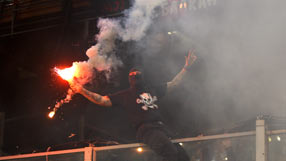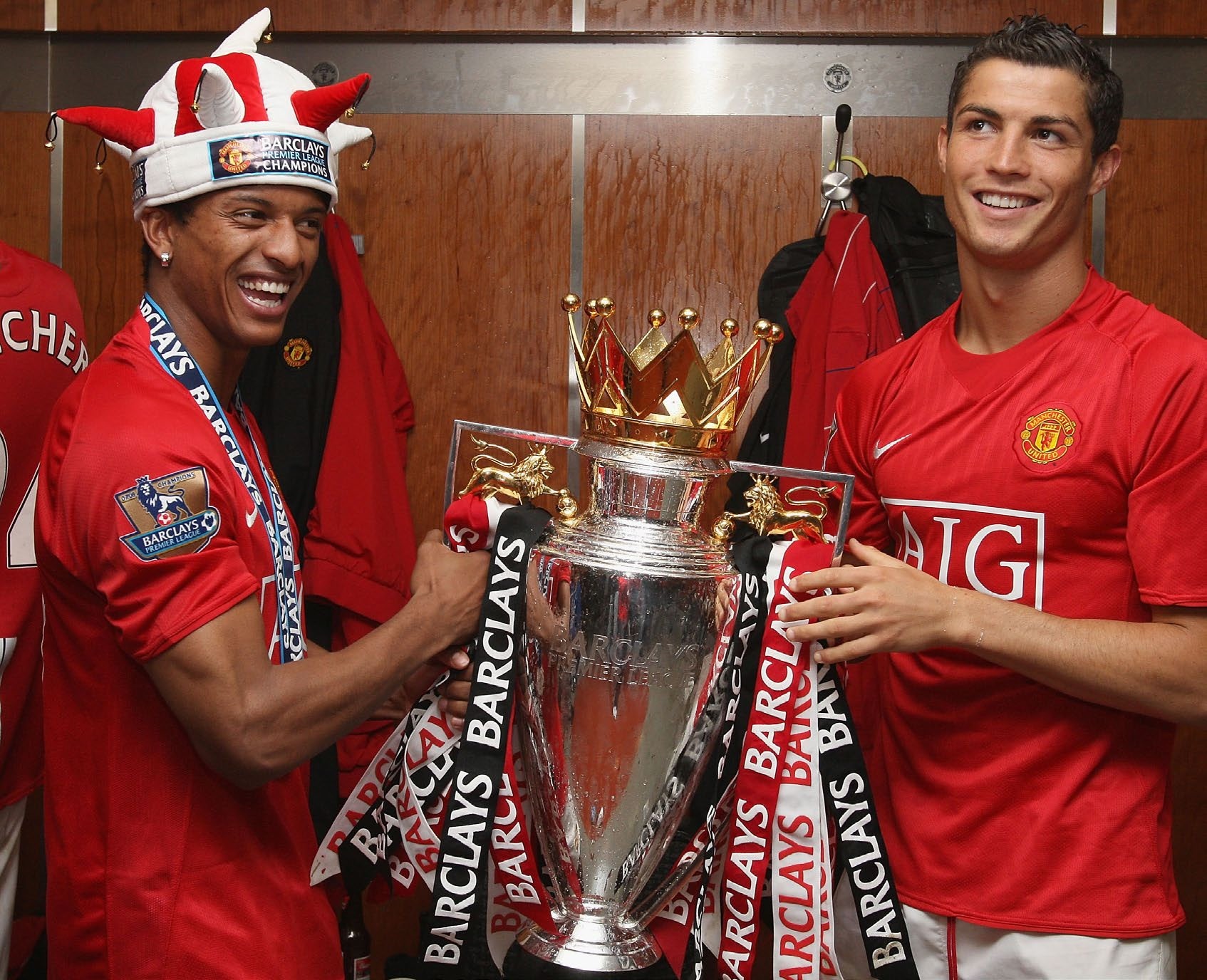
The best features, fun and footballing quizzes, straight to your inbox every week.
You are now subscribed
Your newsletter sign-up was successful
Want to add more newsletters?

Five times a week
FourFourTwo Daily
Fantastic football content straight to your inbox! From the latest transfer news, quizzes, videos, features and interviews with the biggest names in the game, plus lots more.

Once a week
...And it’s LIVE!
Sign up to our FREE live football newsletter, tracking all of the biggest games available to watch on the device of your choice. Never miss a kick-off!
Join the club
Get full access to premium articles, exclusive features and a growing list of member rewards.
Serbia fans scaled fences inside the stadium in Genoa, delayed the kick-off and finally forced the fixture to be abandoned having hurled a number of flares on to the pitch.
"The whole of Europe saw the disgrace and shame brought upon Serbia by fans who have kept us under siege in our hotel for two days," FSS president Tomislav Karadzic told Belgrade's B92 television after the rioting.
"We had information these fans would come here with the intention to force the game to be abandoned and we notified the Italian authorities.
"It's up to the Serbian government now to launch a swift investigation and establish who recruited these young men to come here and riot because this is an act of aggression which goes beyond football."
The rampage in Genoa was foreshadowed by an apparently co-ordinated campaign against a single player.
Serbia goalkeeper Vladimir Stojkovic, a former Red Star player, has been targeted by his former club's fans since he joined city rivals Partizan on loan from Sporting Lisbon in August.
According to reports, fans printed fake obituaries, made obscene phone calls to him and produced insulting banners. On Friday they jeered every time he touched the ball in Serbia's 3-1 home defeat by Estonia.
The best features, fun and footballing quizzes, straight to your inbox every week.
On Tuesday, an hour before Serbia's match with Italy was due to kick off, reports said several of them stormed the team bus with burning flares.
According to Serbian media, only a swift reaction by Stojkovic's team mates prevented a serious assault.
The latest outburst of violence will have been familair to anyone who has followed the game in Serbia, particularly since the former Yugoslavia's bloody break-up.
Crowd trouble in communist Yugoslavia boiled down to relatively innocuous punch-ups, but civil strife accompanied by Serbia's international isolation and economic hardship in the 1990s unleashed far more serious problems.
The Belgrade derby toll of the last 20 years includes several deaths and hundreds if not thousands of seriously injured fans, but a massive public outcry came only after Partizan fans killed a French supporter last year in Belgrade.
The country's authorities will soon face another test of their ability to deal with hooliganism.
Red Star are at home to Partizan in a domestic league clash on October 23 and it will be no great surprise if riot police are deployed in numbers once again.
 Join The Club
Join The Club










